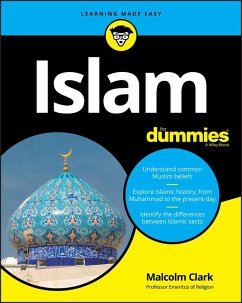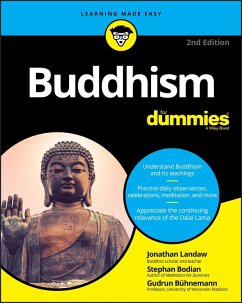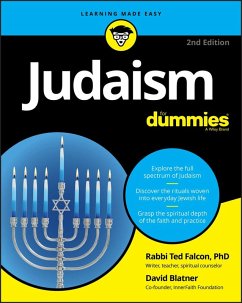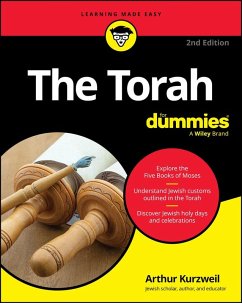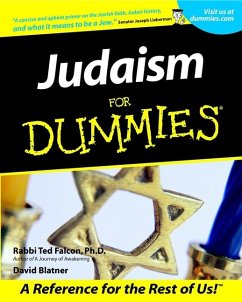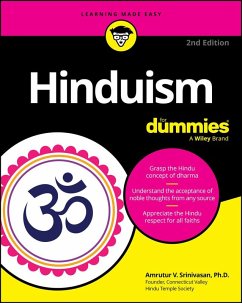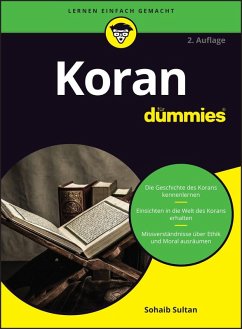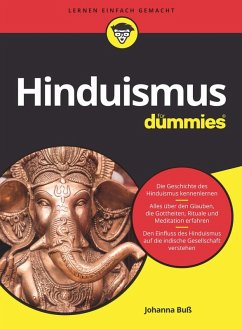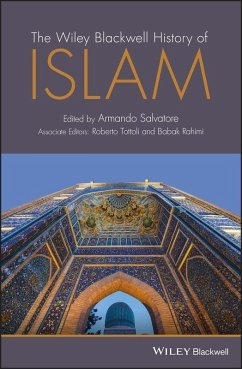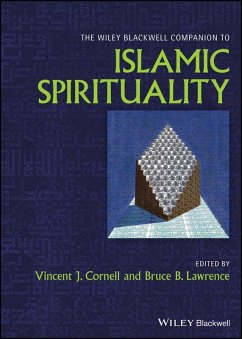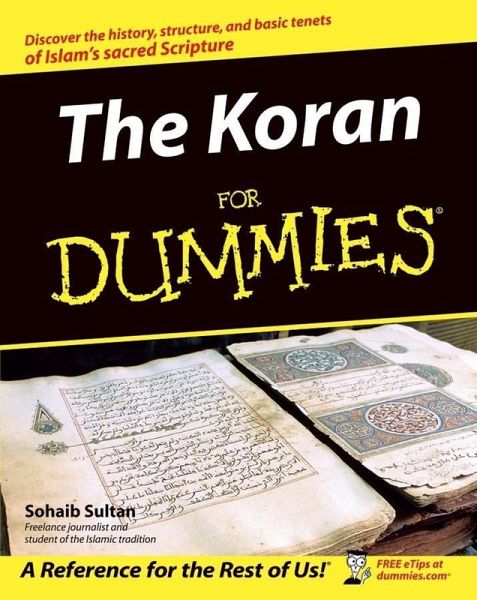
The Koran For Dummies (eBook, ePUB)

PAYBACK Punkte
0 °P sammeln!
With the current turmoil in the Middle East, there is a growing interest about Islam--the world's second largest religion and one of the fastest growing--and its holy book, the Koran (or Qur'an). Now, with this easy-to-follow, plain-English guide, you can explore the history, structure, and basic tenets of Islam's sacred scripture. The Koran For Dummies is for non-Muslims interested in the Koran as well as Muslims looking to deepen their understanding. Islamic scholar Sohaib Sultan provides a clear road map, revealing: * The meaning of Koran and its basic message * The Koran's place in history...
With the current turmoil in the Middle East, there is a growing interest about Islam--the world's second largest religion and one of the fastest growing--and its holy book, the Koran (or Qur'an). Now, with this easy-to-follow, plain-English guide, you can explore the history, structure, and basic tenets of Islam's sacred scripture. The Koran For Dummies is for non-Muslims interested in the Koran as well as Muslims looking to deepen their understanding. Islamic scholar Sohaib Sultan provides a clear road map, revealing: * The meaning of Koran and its basic message * The Koran's place in history and in Islamic spiritual life * Explanations of its language, structure, and narrative style * How to live by the Koran's teachings * The Koran's role in key global issues, such as Jihad vs. terrorism * Different interpretations of the Koran No other book provides such a straightforward look at what the Koran says, how it says it, and how believers live according to its guidance. From how the Koran was received by Mohammed and how it was compiled to how it's interpreted by Islam's two main branches, you'll see how to put the Islamic faith in perspective. Plus, you'll discover: * What the Koran really says about women and civil law * How Islam relates to Judaism and Christianity * The Koran's view of God, prophets, mankind, and the self * How its teachings are lived and recited every day by devout Muslims * Common misconceptions of the Koran * How to raise a family the Koranic way Complete with lists of important passages, Koranic terminology, famous quotes, and further reading resources, The Koran For Dummies makes it easy and enjoyable for you to grasp the teachings and significance of Islam's holy book.
Dieser Download kann aus rechtlichen Gründen nur mit Rechnungsadresse in A, B, BG, CY, CZ, D, DK, EW, E, FIN, F, GR, HR, H, IRL, I, LT, L, LR, M, NL, PL, P, R, S, SLO, SK ausgeliefert werden.



